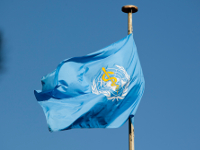The current Covid-19 pandemic demonstrates the great importance of international cooperation in the prevention and containment of global disease outbreaks. In the new PRIF Working Paper "Norm Conflicts in Global Health: The Case of Indonesia and Pandemic Influenza Preparedness", Una Jakob traces the cooperation in the "Pandemic Influenza Preparedness Framework" (PIP Framework) of the World Health Organization (WHO). The framework was adopted in 2011 as a reform of decades of cooperation. Indonesia had previously dropped out of the previous network in 2007 because the country, like other members of the Global South, did not benefit adequately from the results of the research, even though they were an important supplier of virus samples.
The new Framework established benefit-sharing and virus-sharing as principles on an equal footing. It thus reformed the WHO process but also brought to the fore existing tensions and conflicts between various norms and practices: global health cooperation (which requires the sharing of pathogen samples), the protection of intellectual property rights (which is intended to promote innovation and ensure profits), and the protection of genetic resources (which considers pathogens as national resources and requires adequate benefit-sharing in their exploitation).
This Working Paper traces Indonesia’s policy regarding pandemic influenza preparedness and the reform process within WHO. Moreover, it presents the interlinkages between said norm complexes, which are exacerbated by technological developments in genetic sequencing, as areas that would merit further theoretical and empirical research.
